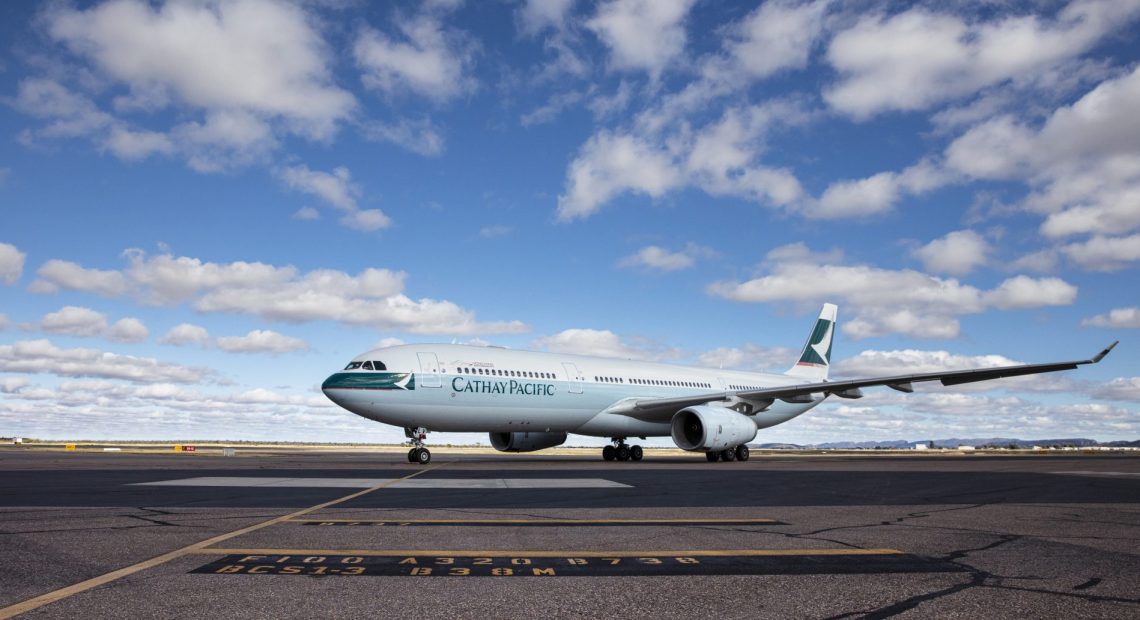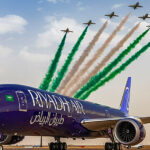Cathay Group Completes Aircraft Reactivation

As Last Plane Returns From Overseas Parking
The Cathay Group commemorated the culmination of an extraordinary endeavour in its 77-year history as it welcomed back its last aircraft from long-term overseas parking on June 11, 2024. The return signified the conclusion of a remarkable chapter in the carrier’s rebuild journey.
The pinnacle of this achievement was reached on June 6, 2024, when the 85th and final aircraft, Cathay Pacific’s Airbus A330 with registration B-HLV, emerged from four years of rest in the Australian desert.
The aircraft’s return to Hong Kong, after being the first to enter long-term parking overseas on July 28, 2020, amid the pandemic-induced global halt in air travel, symbolises the determination and resourcefulness of the Cathay Group.
Amidst the global pandemic, Cathay Pacific and HK Express faced the unprecedented challenge of grounding a significant portion of their passenger aircraft fleet at Hong Kong International Airport and overseas locations in Alice Springs, Australia, and Ciudad Real, Spain.
However, demonstrating remarkable resilience and adaptability, the Cathay Group embarked on the gradual reactivation of these aircraft. This meticulous process, involving a series of maintenance checks and inspections to ensure safety and operational efficiency, is a testament to the determination and resourcefulness of the Cathay Group in the face of adversity.
Unprecedented Undertaking
Cathay Group’s Chief Operations and Service Delivery Officer Alex McGowan said: “The parking and reactivation of such a large number of aircraft is an unprecedented undertaking, a testament to the collective effort and resilience of the entire Cathay Group and our partners. This achievement is a testament to our shared determination and resourcefulness in adversity.
“This endeavour, characterised by a scale and complexity hitherto unseen at Cathay, involved an immense effort to safeguard and maintain the aircraft during their idle phase, followed by the intricate process of reactivating them for regular service.
“We are immensely proud of achieving this for over 85 aircraft parked overseas, alongside managing the considerable number of grounded aircraft in Hong Kong. We thank the Hong Kong Civil Aviation Department for their invaluable support throughout this journey.”
McGowan further acknowledged: “Our teams, both in Hong Kong and worldwide, played a pivotal role in ensuring the well-being of our most valuable assets. Their commitment and resilience in overcoming challenges embody Cathay’s ‘can-do’ spirit. I am immensely proud of their remarkable efforts as we reunite our last aircraft from the desert with the rest of our fleet, marking the conclusion of a remarkable chapter in Cathay’s history.”
The Cathay Group is poised for future growth and development with fully reinstated fleet.
The company has over 70 new aircraft on order and the option to acquire an additional 52 in the future. Furthermore, the Cathay Group is exploring the potential of a new mid-size widebody aircraft, a testament to its commitment to innovation and progress. These plans reaffirm the company’s confidence in the Hong Kong international aviation hub, and anticipation is high for the opportunities presented by the Three-Runway System at Hong Kong International Airport, which is scheduled for full commissioning by the year’s end.
The Procedures
Bob Taylor, General Manager of Engineering Operations, shed light on the meticulous maintenance regimen undergone by parked aircraft.
“Long-term parking necessitates a structured maintenance programme comprising periodic inspections to ensure the aircraft remains in optimal condition. Reactivating these aircraft demands rigorous checks and inspections to guarantee their safety during transit from overseas parking facilities. Subsequently, each aircraft undergoes detailed inspections as part of its scheduled hangar maintenance check.”
The meticulous care extended to each aircraft in Alice Springs involved a 14-day preservation check upon arrival, followed by a cycle of periodic inspections and checks. Over 16,000 periodic checks were conducted throughout the programme, with a staggering 800,000 labour hours dedicated to the preservation, periodic, and reactivation maintenance.
Additionally, over 40,000 parts and specialised equipment were transported from Hong Kong to support operations in Alice Springs, and the Cathay Group’s on-site Quality Assurance team executed over 2,000 audits.
Taylor added: “This monumental endeavour was made possible through a collaborative effort involving multiple departments within the airline, alongside key partners such as the Hong Kong Aircraft Engineering Company, Boeing, Airbus, and Asia Pacific Aircraft Storage (APAS), our local service provider in Alice Springs. Managing this extensive workload across an unprecedented number of aircraft is a testament to the team’s extraordinary achievement, of which I am immensely proud.”
Featured image: Cathay Pacific’s Airbus A330 has emerged from four years of rest in the Australian desert. Credit: Cathay Pacific
Last Updated on 9 months by News Desk 2













